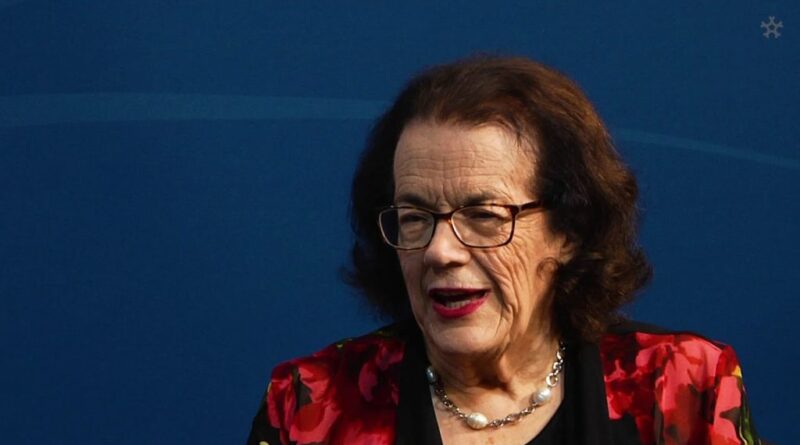Australia will follow US in diplomatic boycott of China’s Winter Olympics

Australia will impose a diplomatic boycott on the February Winter Olympics in China. But the Australian team will still take part.
The government’s move follows the United States’ lead, triggered by China’s human rights breaches.
Announcing the decision on Wednesday, Scott Morrison said: “People have been very aware that we have been raising a number of issues that have not been received well in China and there’s been a disagreement between us on those matters.
“The human rights abuses in Xinjiang and many other issues that Australia has consistently raised – we have been very pleased and very happy to talk to the Chinese government about these issues and there’s been no obstacle to that occurring on our side.
“But the Chinese government has consistently not accepted those opportunities for us to meet about these issues.
“So it is not surprising, therefore, that Australian government officials would […] not be going to China for those Games.”
But Australian athletes would be competing, he stressed. “Australia’s a great sporting nation and I very much separate the issues of sport and these other political issues. They’re issues between two governments.”
The Prime Minister’s Office confirmed the boycott would include non-attendance by officials from the Australian embassy.
The government’s position differs from that of the Fraser government which urged a full boycott of the 1980 Olympics in Moscow, in protest against the Soviet invasion of Afghanistan. This followed the stand by then US president Jimmy Carter.
The Fraser government’s stand led to a split with the then Australian Olympic Federation which voted by a narrow margin to send a team, although some athletes did not go.
The chief executive officer of the Australian Olympic Committee, Matt Carroll the AOC was “heartened” by Morrison’s support for the Australian team.
“Human rights are extremely important, but the considered view of diplomats is that keeping channels of communication open is far more impactful than shutting them down, ” Carroll added.
The AOC is expecting to send about 40 athletes to the Beijing Games.
Labor said in a statement from shadow foreign minister Penny Wong and sports spokesman Don Farrell that it supported the decision not to send officials and dignitaries.
“We hold deep concerns about ongoing human rights abuses in China, including towards Uyghurs and other ethnic and religious minorities, and about athlete safety given questions about the treatment of tennis player Peng Shuai.
“This decision, alongside other countries’ diplomatic boycotts, sends a strong signal that these are not the behaviours of a responsible global power.
“Our athletes have trained hard for years towards this opportunity and didn’t choose where the Winter Olympics are being held. It is appropriate that they are not the ones asked to make a sacrifice.
“The Australian government must ensure our team is supported by Embassy staff on the ground,” Labor said.
A spokesperson for the Chinese embassy in Canberra said under Olympic rules, dignitaries were invited by their respective national Olympic committees.
“Australia’s success at the Beijing Winter Olympics depends on the performance of Australian athletes, not on the attendance of Australian officials, and the political posturing by some Australian politicians,” the spokesperson said.
The spokesperson said “the blame for the current predicament of China-Australia relations lies squarely on the Australian side. China once again urges the Australian side to take practical measures to create favorable conditions for improving bilateral relations.
“The Australian side’s statement that it will not send officials to the Beijing Winter Olympics runs counter to its publicly pronounced expectation to improve China-Australia relations.”

